Aleksander Poreda (Krakow School of Brewing, Poland)
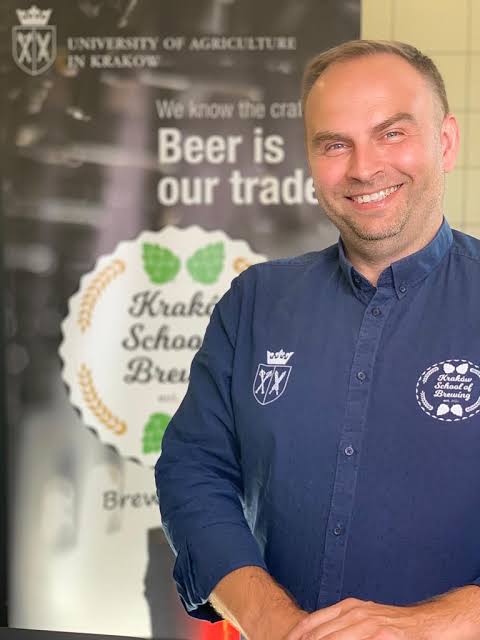
Prof. Aleksander Poreda defended doctoral "The influence of selected metal ions on the fermentation of beer wort" (2006) at the Agricultural University in Krakow, Poland, where since 2015 he has been an associated professor. In 2016 his efforts led to the establishment of the Krakow School of Brewing which offers comprehensive education, research and analytical support for brewers in Poland. Training programs are offered at the university level (BSc., postgraduate and doctoral studies) and open courses. He was the coordinator of international doctoral studies in the field of malting and brewing, carried out as part of the European Joint Doctorate in Food Science project (financed by the Horizon 2020 program). He has authored many scientific publications, organizes an international brewers conference in Poland called School of Fermentation Technology.
TOPIC OF THE LECTURE
"What every brewer needs to know about water - the key ingredient of beer?"
Water makes up 85–95% of the composition of beer, making it a key raw material in its production. The quality of water directly affects the taste, aroma and stability of beer, and its mineral composition determines its suitability for certain types of beer. For example, water with a high calcium and magnesium content is suitable to the production of English pale ales, while soft water with a low mineral content is better suited for pilsners.
The preparation of water for beer production involves several steps to achieve optimal quality. Initial treatment includes disinfection, often by chlorination, and filtration on sand filters to remove impurities. Further methods, such as aeration and adsorption on activated carbon, are used to eliminate undesirable substances and odors. Ion exchange and membrane technology processes are used to precisely adjust the mineral composition of the water.
Ensuring clean and high-quality water is important not only for beer production, but also for environmental protection. Breweries often cooperate with natural resource protection organizations to protect and restore water sources, recognizing their key role in the entire ecosystem.
Gianmaria Ricciardi (Lallemand Brewing, UK)
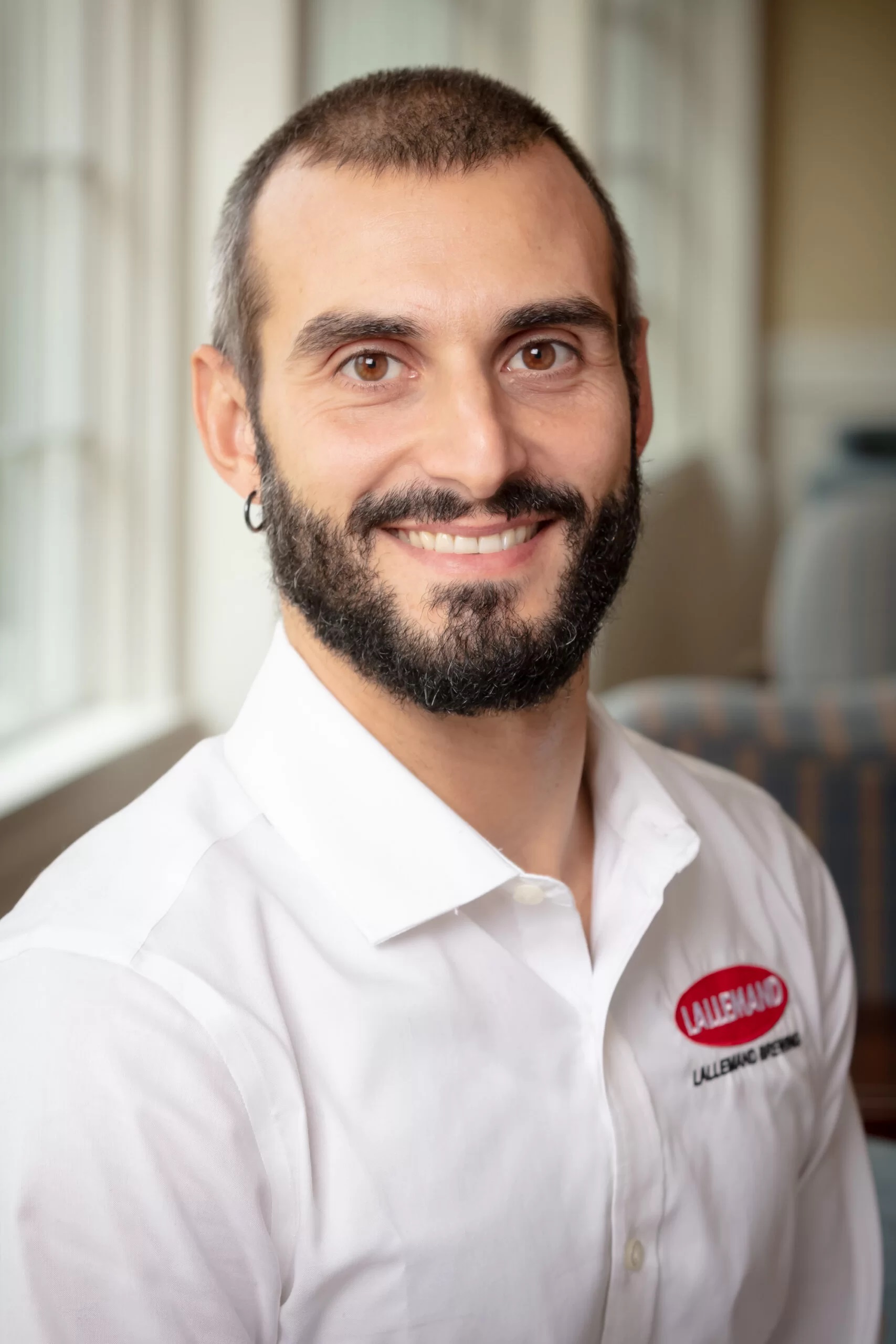
Gianmaria Ricciardi started his own experience in the brewing industry when studying Food Technology and Biotechnology at the University of Perugia (Italy). At that time, he had the opportunity to develop the theory behind this industry by working with the C.E.R.B. (Italian Brewing Research Centre) part of the same Athenaeum and having an internship at Birra Peroni S.r.l. plant in Rome. He completed his degree in 2012. From 2011, he was employed as Head Brewer firstly for Birrificio Toccalmatto (Fidenza, Italy), then for Howling Hops Brewery (London, the UK), and lastly for Birrificio Birradamare (Fiumicino, Italy). Gianmaria currently occupies the position of Technical Sales Manager for Lallemand Brewing to service and support the brewing industry.
TOPIC OF THE LECTURE
"Optimization and sustainability of the brewing process”
This presentation will focus on the themes of optimization and sustainability within the brewing industry, highlighting the importance of reducing environmental impact while maintaining quality and cutting costs. The core of the speech discusses the concept of efficiency in beer production, emphasizing the need to optimize resource consumption—such as water, electricity, gas, and CO₂—in order to achieve both financial and environmental benefits. We will outline Lallemand Brewing's approach to process optimization, which incorporates biotechnological solutions, process aids, and education.
Additionally, we will explore the role of yeast in energy optimization, featuring various strains such as LalBrew Voss™, LalBrew NovaLager™, and LalBrew Nottingham™, amongst many others. These strains provide advantages like higher fermentation temperatures, reduced maturation times, and improved energy efficiency. The speech will conclude with a discussion on the use of enzymes and process aids to enhance brewing efficiency and sustainability. We will emphasize the critical role of continuous innovation and education, as provided by institutions like the Siebel Institute of Technology, in achieving a more sustainable and efficient brewing process.
Jonas Trummer (Murphy & Son, UK)
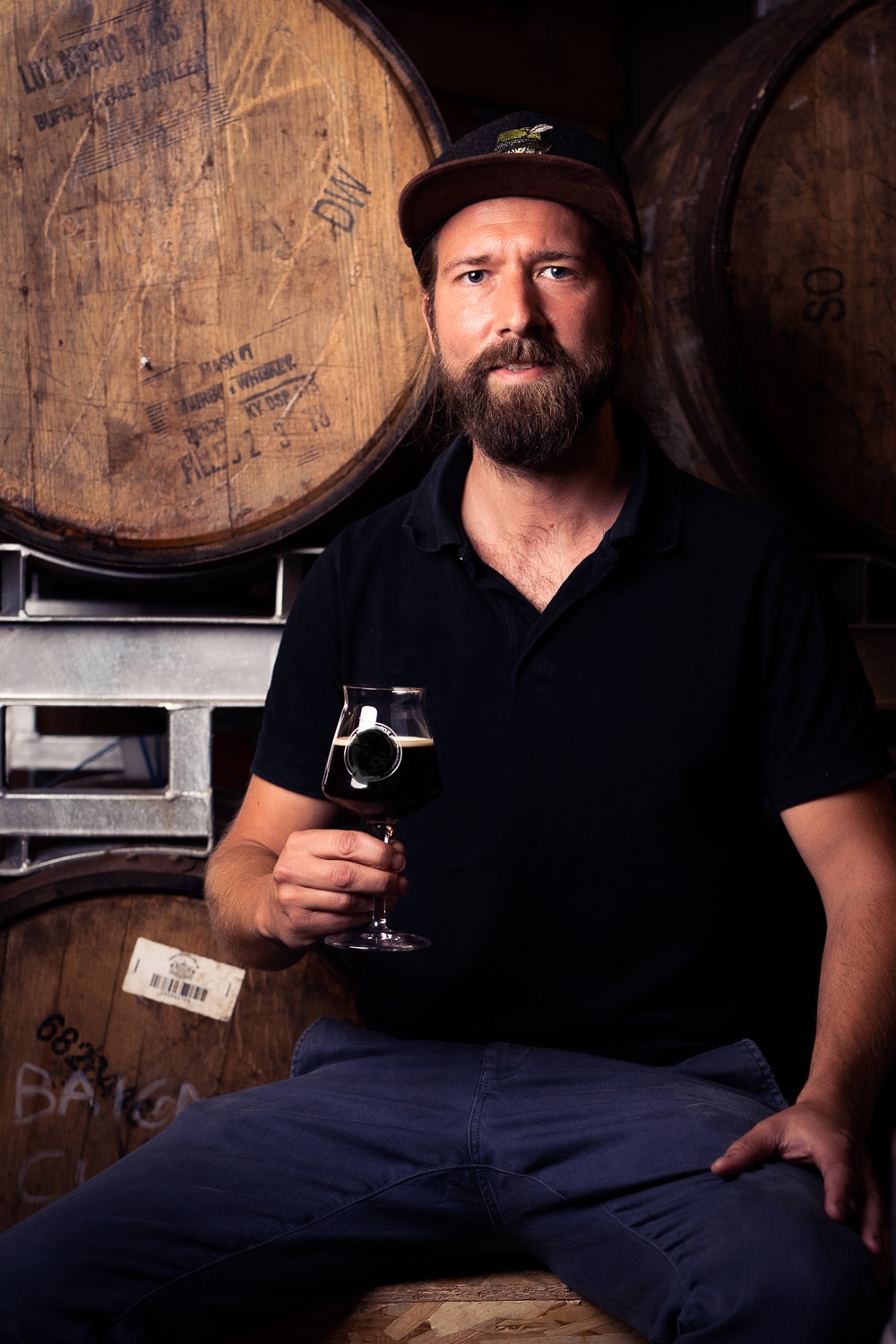
Jonas Trummer is an Brewing Science - Alumni of the prestigious TUM-Weihenstephan. Additionally, he holds a PhD in Brewing Science from the Agricultural University in Krakow and the University Ghent.He has worked in breweries of all sizes in Germany, Poland and France. Since 2024, he is the Technical Sales Manager for Murphy and Son in Europe.
TOPIC OF THE LECTURE
"The use of κ-Carrageenan extracted from seaweed in brewing"
Carrageenan, a polysaccharide derived from seaweed, is widely used as a fining agent in the brewing industry to enhance the clarification of beer wort. Its primary role lies in promoting the precipitation of haze-forming proteins, primarily derived from malt, which are responsible for turbidity and instability in the final product. When added during the boiling stage of wort preparation, carrageenan interacts with these proteins, forming insoluble complexes that are easily removed by sedimentation or filtration. This process not only improves the visual clarity of beer but also contributes to its stability by reducing the risk of protein-polyphenol haze during storage. The use of carrageenan offers significant advantages, including its natural origin, efficiency at low dosages, and compatibility with a wide range of brewing conditions. In this presentation, we will explore the mechanisms of carrageenan's action and its application parameters, highlighting its role as a sustainable and effective solution in modern brewing practices.
Jan Biering (VLB Berlin, Germany)
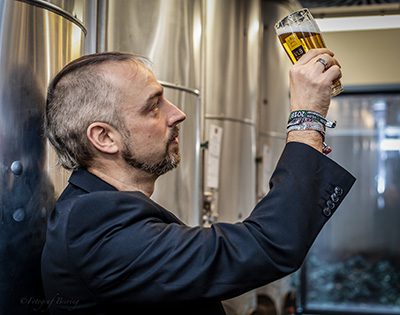
Jan Biering graduated from the Technical University of Berlin (1997 to 2003) where he obtained a B.Sc. Biotechnology/brewery engineer. In addition, from 1995 to 1997, he worked as an intern at the brewery Kulmbacher Brauereien, Kulmbach, Germany. He currently works as the head of the Research Institute for Beer and Beverage Production at VLB (Versuchs- und Lehranstalt für Brauerei) in Berlin and is also a consultant. As of 2021, he is responsible for the Brewing and Beverage Research Institute, including consulting in breweries worldwide with a focus on technological issues, recipe development and troubleshooting, and microbiological issues. He is also engaged in education and training for various courses at VLB which include craft brewing course up to the certified brewmaster course. From 2003 to 2011, he was Production Manager at the Schlossbrauerei Schwarzbach brewery, where he was responsible for the entire beer production process, from raw materials to bottling and keg filling. His areas of responsibility included quality management, customer relations, and the production of soft drinks.
TOPIC OF THE LECTURE
“Flavor Stability: Unlocking the Secret to Lasting Beer Taste!”
Flavor stability is a critical yet often underestimated aspect of beer quality, influencing consumer satisfaction and brand loyalty. In this insightful presentation, Jan Biering, Head of the Research Institute for Beer and Beverage Production and renowned global consultant to breweries, will delve into the complexities of flavor stability in beer. Drawing on years of expertise and a wealth of consulting experiences from diverse breweries around the world, Mr. Biering will provide a comprehensive overview of how to enhance beer's sensory longevity while maintaining its authentic character.
The session will bridge scientific principles with real-world applications, discussing key factors that impact flavor stability, including raw materials, brewing processes, and storage conditions. Mr. Biering will share practical strategies implemented by breweries to combat flavor degradation, as well as techniques for monitoring and optimizing stability.
By blending a scientific foundation with hands-on insights, this presentation aims to equip small and larger brewers with actionable knowledge to elevate beer quality. Whether you are aiming to refine your production techniques or deepen your understanding of beer’s sensory dynamics, this talk promises to be a refreshing dive into the art and science of beer flavor stability.
Miha Ocvirk (Slovenian Institute of Hop Research and Brewing, Slovenia)
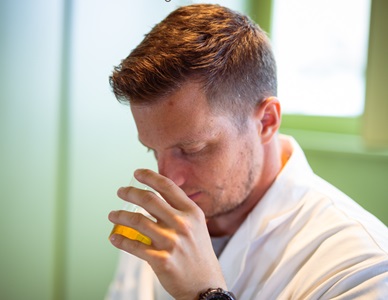
Miha Ocvirk currently works as a scientist at the Slovenian Institute for Hop and Brewing Research in the Department of Chemistry and as a risk assessor for the registration of plant protection products and active substances. His main research focus is plant science, especially secondary plant metabolites (essential oils, polyphenols, etc.) and food authenticity. He also deals with fermentation and the formation of volatile compounds that affect the sensory characteristics of beer. During his PhD, he published several scientific papers in brewing. The goal of his doctoral research was to develop an analytical methodology that allows for the classification of beer according to the results of a sensory panel assessment. They used independent analytical techniques (GC/MS, HPLC) that can replace or improve traditional panel assessment. They were also the first in the world to use stable isotopes (GC-IRMS) to determine the geographical origin of hops, which is useful for detecting fraud in brewing. In addition, he works as an expert in sensory analysis for the national beer assessment panel and as a mentor at the University of Ljubljana. He has a certificate for a chemical consultant in the field of chemical legislation (REACH, GHS).
TOPIC OF THE LECTURE
"Evolution of beer aroma"
Hops’ unique composition of volatile compounds are of crucial importance for beer aroma. Other volatile components in the beer matrix also have influences on beer aroma. Most of these components are present in beer in very low concentrations, but because of their low odor threshold, they have a significant impact on beer volatile profile. Most of these components are formed during alcoholic fermentation and consist of the metabolic by-products of yeast, but on the other hand, the influence of other volatile components derived from the mayor raw material used in the brewing process should not be neglected. Volatile components should be in synergy and in desired concentration level, if not, some component may prevail and destroy the synergy. Because of the diverse and comprehensive technology process, volatile components are a subject of reductions, oxidations and so called biotransformations between each other’s.
 Pristupačnost
Pristupačnost